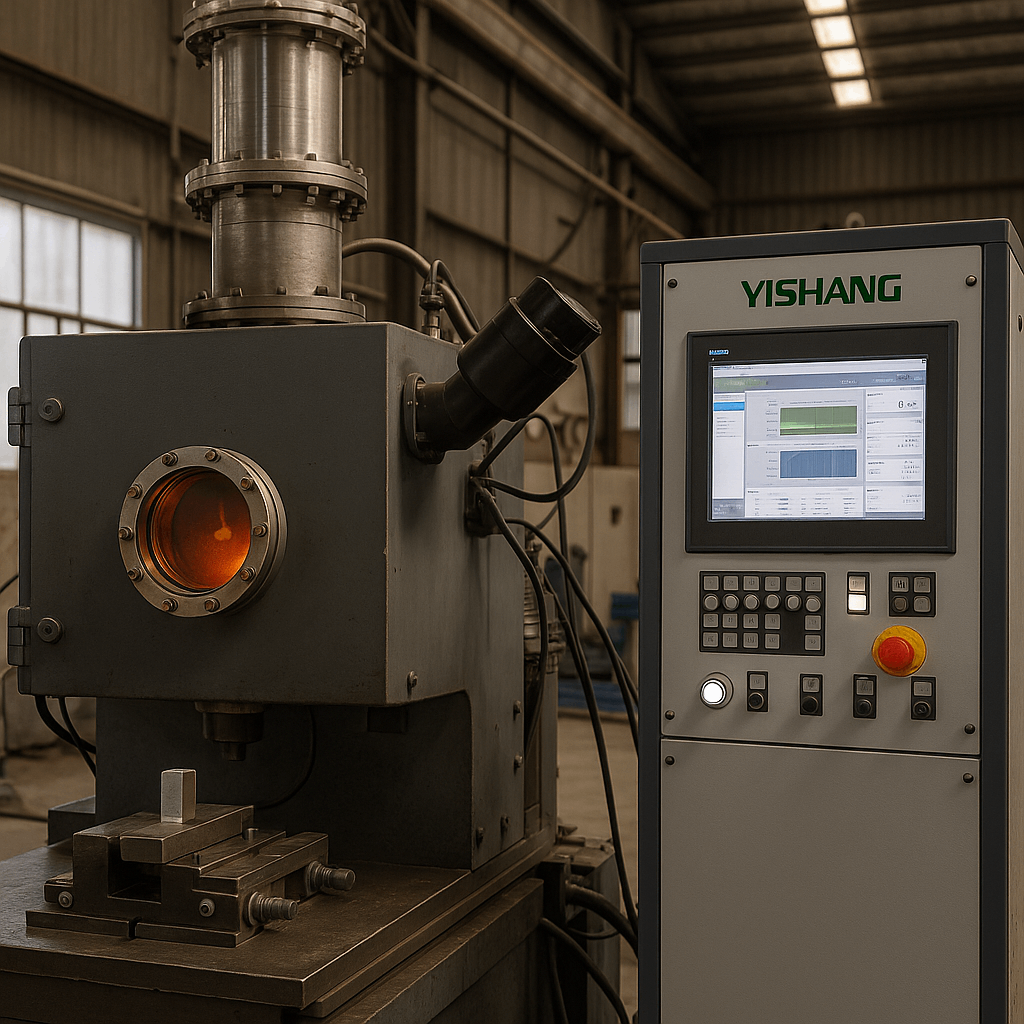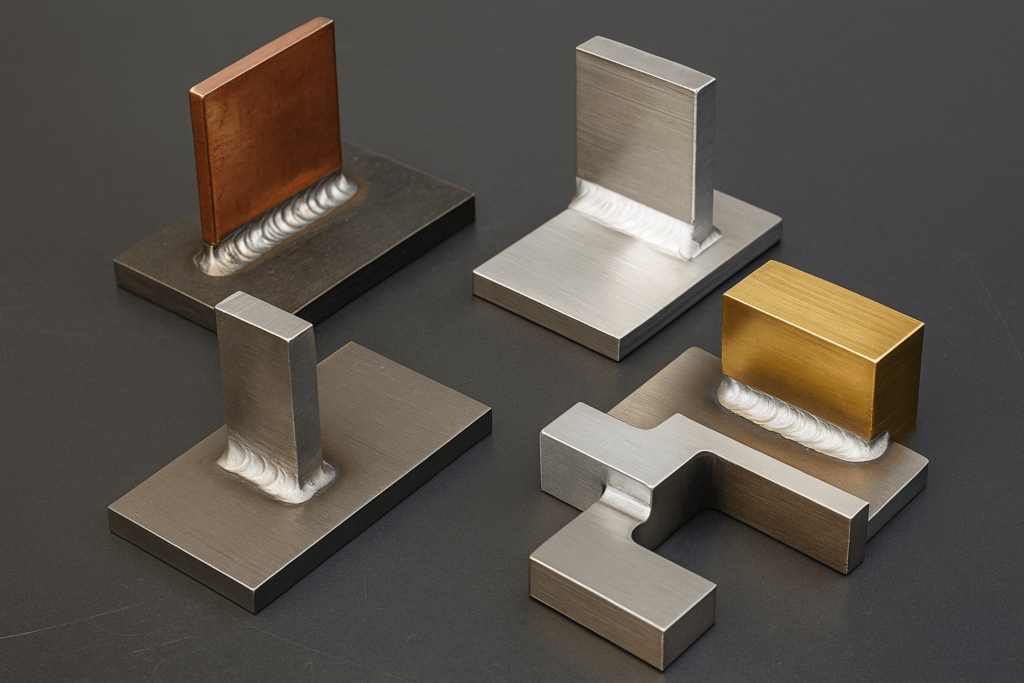The Real Reason EBW Is on the Rise
In today’s global manufacturing economy, international buyers are tasked with sourcing high-performance components under increasing quality and delivery pressure. For procurement teams in aerospace, electronics, medical, and industrial sectors, welding quality is no longer just a technical requirement—it’s a commercial risk factor. Poor joints, material deformation, or post-weld failures can create warranty costs, rework, and shipping delays.
YISHANG integrates Electron Beam Welding (EBW) not as a standalone process but as a core manufacturing strategy. The technology allows for high-precision fusion of metals with minimal thermal impact. For international buyers looking to streamline quality checks, EBW translates to higher consistency and lower defect rates, especially when compared to conventional welding or even soldering techniques in high-strength applications.
EBW vs. Conventional Welding: Why It’s Built for B2B Consistency
Unlike MIG or TIG welding, or even certain forms of soldering or welding hybrids used in basic assembly lines, EBW creates deep, narrow welds without filler material. The entire process is conducted inside a vacuum chamber, preventing oxidation and eliminating porosity—two common causes of downstream failures in parts sourced from low-cost regions.
In the welding industry, repeatability is a hallmark of mature process control. While a tack weld is a temporary welding technique, EBW focuses on permanent, full-penetration joints that reduce the need for post-processing. The result is fewer reworks, simplified quality assurance, and lower landed costs for international procurement teams.
Additionally, buyers evaluating suppliers should consider not just whether they offer welding metal services, but how well they document it. With EBW, suppliers like YISHANG provide complete traceability—beam parameters, vacuum data, weld depth readings—which makes it easier for buyers to validate quality remotely and comply with auditing requirements.
What Procurement Teams Should Look for in an EBW-Capable Supplier
For sourcing agents, EBW capability signals more than technical capacity. It reflects a manufacturer’s commitment to long-term quality systems, modern equipment, and risk reduction. Contract welding & fabricating providers who invest in EBW typically support industries where failure is not an option—medical, aerospace, energy storage, and critical electronics.
Buyers should evaluate whether the EBW provider operates within a clean vacuum environment, adheres to standards like AWS D17.1 or ISO 13485, and can weld advanced alloys like 4130 steel. Suppliers with knowledge of 4130 weldability or 4140 weldability are typically better equipped to handle material-specific challenges and reduce heat-affected zone risks.
YISHANG’s platform integrates EBW with CNC stages, robotic positioning, and real-time monitoring. This design for welding control ensures uniform penetration, reduced material stress, and a lower rate of NDT (non-destructive testing) failures, directly contributing to better supplier scorecard performance.
Solving International Sourcing Challenges with EBW
Cross-border buyers often deal with inconsistent weld quality and difficulty confirming real-time QA data. This is especially true when sourcing dissimilar metals or precision assemblies. EBW excels at solving such challenges. Whether joining copper to titanium or achieving 100% penetration on aerospace-grade aluminum welding, the beam’s controllability ensures clean results.
Unlike brazing welding or solder welds that may lack structural integrity for load-bearing components, EBW produces metallurgical bonds with uniform microstructure. This makes it ideal for high-spec demands like anodizing welded aluminum surfaces or ensuring welds can endure vibration, pressure, and thermal stress.
YISHANG’s customers report improved compliance rates and reduced returns thanks to our automated EBW platform. We provide full data logs, inspection reports, and compliance documentation for every order—ideal for clients managing multiple vendors across geographies.
Is EBW Cost-Effective for High-Volume Buyers?
Yes—especially when total cost of ownership (TCO) is considered. While the upfront price per EBW joint may be higher than arc mark welding or aluminum welding via conventional techniques, the downstream benefits are substantial: less rework, shorter assembly timelines, and fewer returns due to structural issues.
Consider this: In a recent batch of 3,000 aerospace brackets, YISHANG’s EBW process reduced the reject rate from 4.8% (under MIG welding) to 0.2%. That single improvement saved over $19,000 in field warranty and reshipment costs. These are the benefits of robotic welding systems combined with vacuum-controlled precision.
For buyers managing cost-sensitive programs, YISHANG offers consultation to determine whether EBW is appropriate based on geometry, material, and joint type. For example, a fillet is one of the five basic weld joints, but in thin wall applications, full-penetration EBW may offer superior fatigue life and finish.
EBW and Digital Procurement: Forward Compatibility
Global buyers today increasingly prioritize automation, data traceability, and compliance. EBW is perfectly aligned with these expectations. YISHANG’s EBW systems are integrated with Industry 4.0 protocols, allowing seamless connectivity to ERP, MES, and QA systems.
Real-time monitoring provides insights into weld power, chamber vacuum, and penetration depth—data that can be exported and attached to product shipment documentation. This transparency is invaluable for procurement teams undergoing ISO audits or tracking part performance under aerospace or medical standards.
And as international procurement shifts toward digital sourcing platforms, EBW’s high traceability supports predictive sourcing and vendor scoring. In other words, you not only receive welded parts—you receive a digitized record of weld integrity that can be reviewed by engineering, QA, and purchasing teams globally.
A Buyer’s Checklist for EBW Projects
When evaluating a supplier offering EBW, consider these procurement-driven factors:
Is the part functionally critical, geometrically complex, or made of high-value alloy?
Is structural integrity essential (e.g., 2f weld strength or better)?
Is the weld part of a certified assembly under medical, aerospace, or electronics standards?
Also evaluate documentation: suppliers like YISHANG provide NDT reports, vacuum logs, and full PPAP documentation. With our EBW process, overseas clients eliminate in-country QA redundancy and simplify customs declarations with verifiable digital QA logs.
If your team is consolidating suppliers or exploring higher-margin markets, adding an EBW-capable vendor could provide a meaningful advantage in project quality, compliance, and long-term cost.
Frequently Asked Questions (International Buyers)
Is EBW better than MIG welding for precision aerospace parts?
Yes. MIG welding has advantages and disadvantages, particularly in accessibility and cost. But for high-spec parts, EBW offers unmatched purity and dimensional stability.
Can brass be welded with EBW?
Yes, though certain brass alloys require parameter tuning. EBW excels in precision welding of copper-based alloys where porosity is a risk in conventional processes.
How does EBW compare to welding versus soldering methods?
EBW is fundamentally different—it creates a fusion bond under vacuum, while soldering is surface adhesion. For structural integrity, welding assembly processes like EBW outperform solder weld techniques.
Is EBW suited for 4130 steel welding or aluminum assemblies?
Yes, especially for aerospace components. EBW minimizes thermal distortion, making it suitable for both 4130 weldability and aluminium welding with thin sections.
Final Thought: EBW as a Strategic Advantage for Sourcing Teams
YISHANG offers Electron Beam Welding not just as a capability but as a solution to procurement challenges. Whether you need defect-free welding metal parts, verifiable QA documentation, or reduced logistics friction, our EBW platform delivers.
For international buyers looking to improve sourcing resilience, compliance, and part quality, EBW isn’t just a process—it’s a procurement differentiator. Contact our team to learn how YISHANG can help you de-risk your next welding project and elevate your supplier network.
Let’s solve welding challenges together—efficiently, precisely, and globally.



